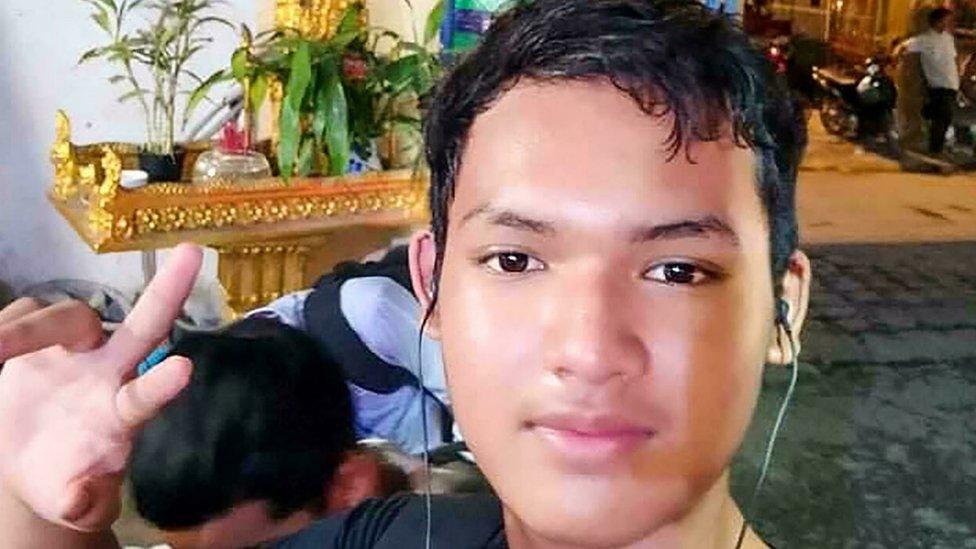Cambodia PM threatens Facebook ban after posts ruled violent
- Published
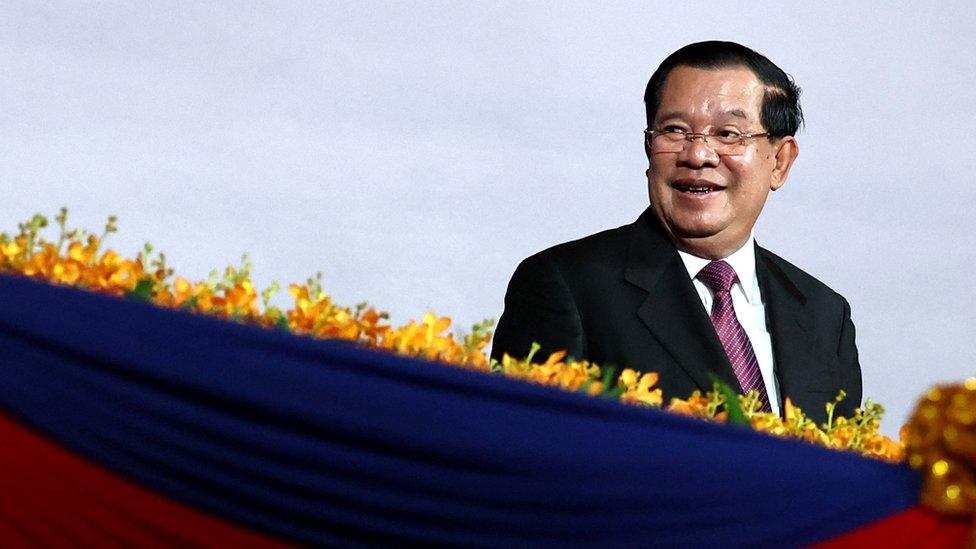
Cambodia's leader of 38 years has switched social media platforms
Cambodia's leader Hun Sen has quit Facebook and threatened to block it in his country after the platform's oversight board recommended he be suspended for six months.
Hun Sen had called for violence against his political opponents in a video in January which was viewed 600,000 times.
His move comes days before he launches a re-election campaign to extend his 38-year-long rule.
Hun Sen was a prolific Facebook user and his page had 14 million followers.
After he left the platform on Thursday, he also threatened to block Facebook in the country.
Talking to garment workers in Pursat province on Friday, he warned he could at any time block the platform "for a short period or forever" to prevent exiled opposition politicians from talking to the country's citizens.
"Don't be arrogant, you guys are staying overseas, you are using Facebook for communications, we could block Facebook," he threatened in comments aimed at opponents.
Hun Sen urged Cambodians to migrate to other social media platforms, including Telegram and TikTok, which he has moved to.
Before he quit Facebook, Hun Sen had built up a following of about 800,000 users on Telegram which is a commonly used channel in Cambodian politics. Critics say the 69-year-old leader's massive social media reach has been due in part to bots or fake accounts.
Facebook parent Meta's Oversight Board on Thursday recommended his suspension for six months over an earlier video, posted in January. It overturned an earlier decision by Facebook to keep the video live, citing "newsworthiness".
"Given the severity of the violation, Hun Sen's history of committing human rights violations and intimidating political opponents, as well as his strategic use of social media to amplify such threats, the Board calls on Meta to immediately suspend Hun Sen's Facebook page and Instagram account for six months," the Board said in a statement.
In the video, Hun Sen threatened opposition leaders against accusing his party of vote theft in elections due to be held in July.
"Either you face legal action in court, or I rally [Cambodian People's Party] people for a demonstration and beat you up," he said.
Soon after the Oversight Board's decision was announced, Hun Sen said he had asked an assistant to delete his Facebook account.
Hun Sen has served as Cambodian Prime Minister for more than 38 years, and is one of the longest-serving political leaders in the world. His rule has been dogged with allegations of human rights abuses, and he has also been accused of decimating all political opposition ahead of the July vote.
In May, Cambodia's electoral body disqualified his sole credible challenger, the Candlelight Party, citing a lack of appropriate paperwork.
And earlier in March, opposition leader Kem Sokha was sentenced to 27 years house arrest for treason, a charge that he denies.
Hun Sen's exit from Facebook is his way of pre-empting the Meta board's suspension, says Sebastian Strangio, author of the book "Hun Sen's Cambodia".
Mr Strangio told the AFP news agency that Hun Sen's decision to move to TikTok and Telegram also reflects Cambodia's broader foreign policy pivot to China and Russia.
TikTok's parent, ByteDance, is based in Beijing while Telegram was founded in Russia, where it is widely used by the public and even the Kremlin.
"Based on their track record, it is much less likely that these two platforms will restrict Hun Sen from using them as he sees fit, including as a vehicle for baiting, goading, and threatening his opponents," Mr Strangio said.
Human Rights Watch (HRW) described Hun Sen's departure from the world's largest social media platform as an overdue "face-off between Big Tech and a dictator over human rights issues".
"The stakes are high because plenty of real world harm is caused when an authoritarian uses social media to incite violence -- as we have already seen far too many times in Cambodia," said HRW Deputy Asia Director Phil Robertson.
Hun Sen's threat to block Facebook has already sparked reaction in Cambodia, where the social media site is seen as the main platform for online activity ranging from political discussions to e-commerce.
"If Facebook is blocked, ties with the West will worsen. Bad officials will be happy," one Facebook user wrote.
- Published15 May 2023
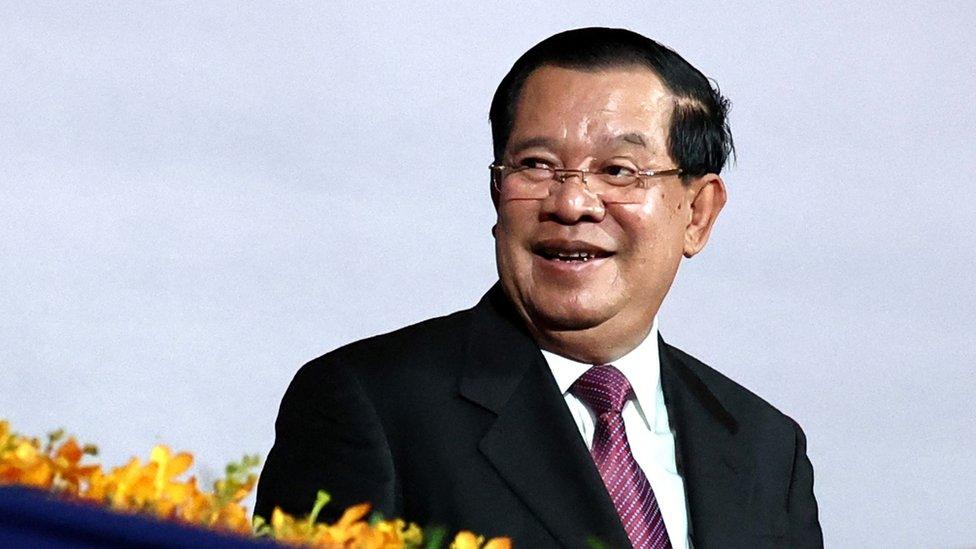
- Published3 March 2023
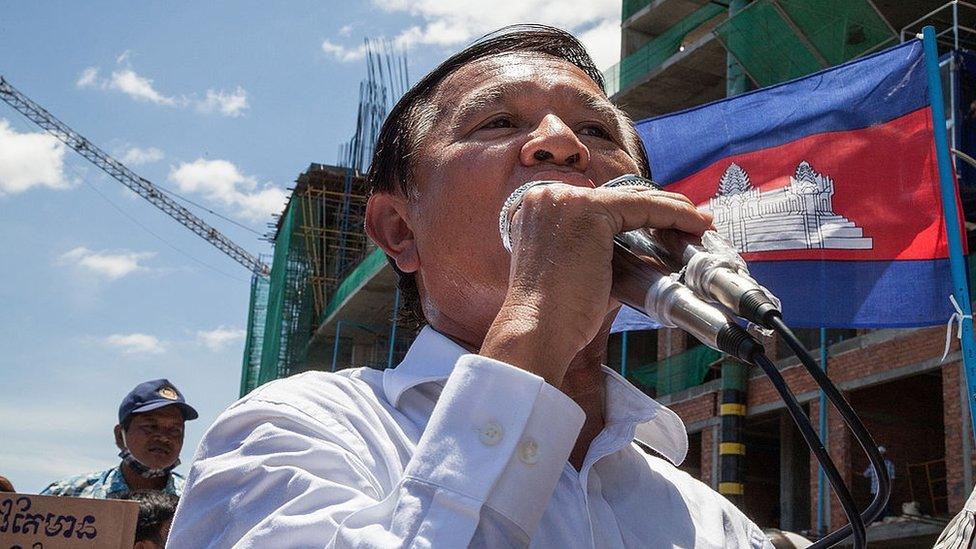
- Published13 February 2023
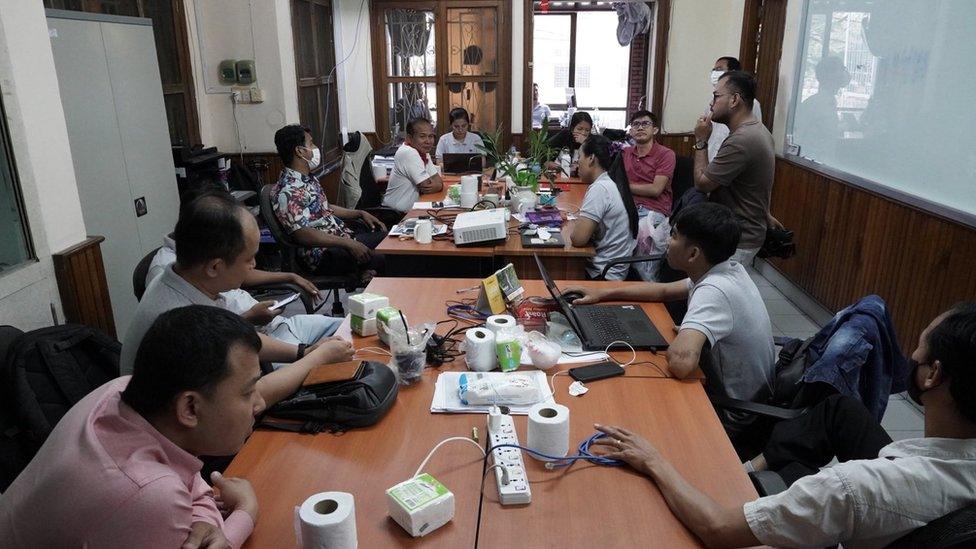
- Published9 April 2022
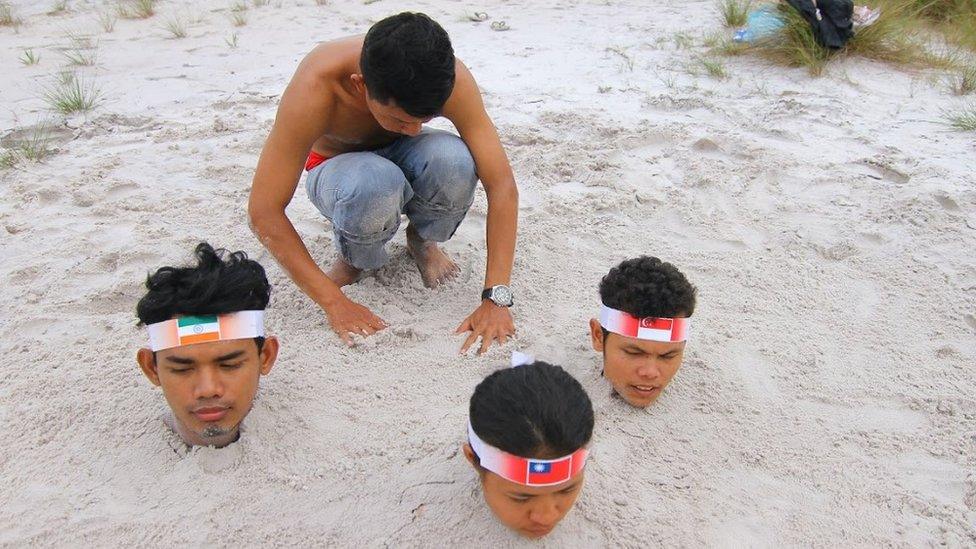
- Published21 September 2021
